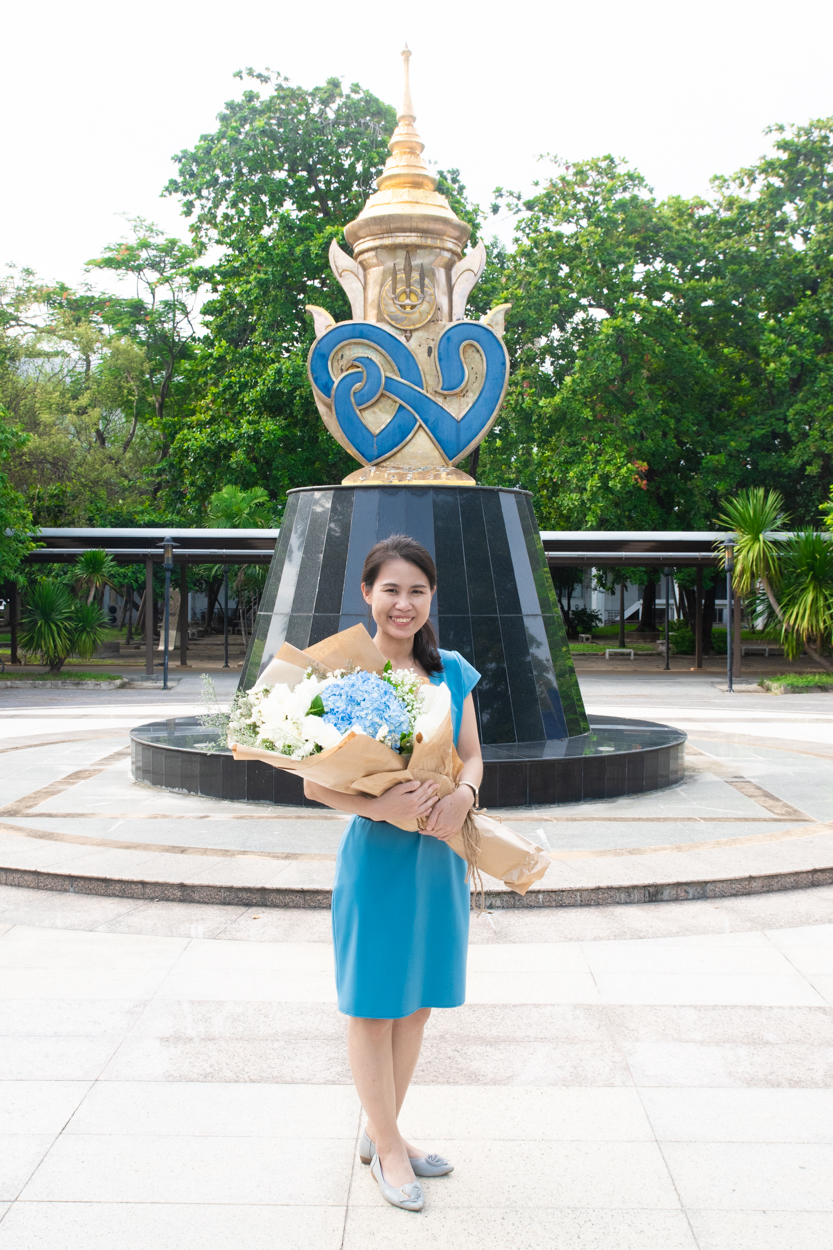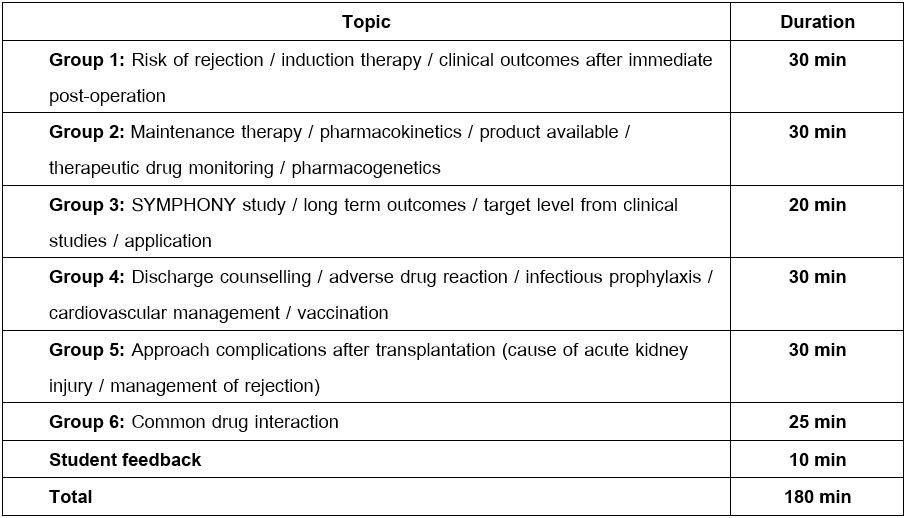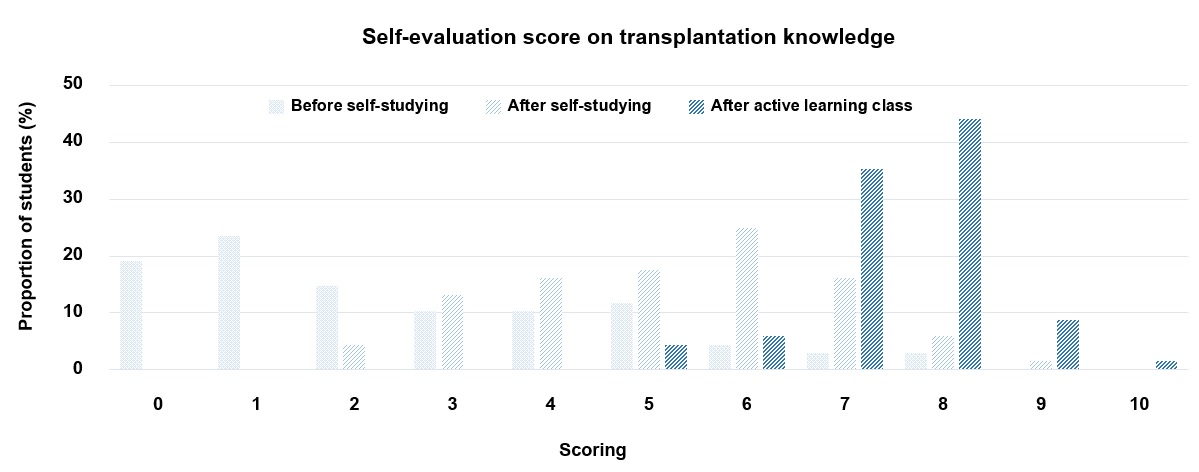
Transformative learning in pharmacy education: A paradigm shift for training transplant pharmacists
Sayamon Sukkha1.
1Department of Pharmacy, Faculty of Pharmacy, Mahidol University, Bangkok, Thailand
Introduction: Learner-centered education has been encouraged as the method of teaching shifting the focus from teachers to students. Pharmacy education has been part of this growth by applying several learning activities to support student performance. As the volume of transplantation drastically increases, transplant pharmacists are demanding to support all aspects of pharmaceutical care. The early exposure of transplantation for pharmacy students would be addressed challenges of the need for transplant pharmacists. This study examined the impact on active learning strategy for pharmacy students.
Materials and Methods: Design: An active learning class of “Pharmacotherapy in kidney transplantation” was designed by a faculty member with experience in kidney transplantation. The goal of 3-hour active learning class was to provide students with more advanced pharmacotherapy in accordance with the course description. Students were expected to achieve the following course objectives: 1) Identify signs/symptoms of the disease (objective, O1) 2) Choose the appropriate drug regimen (O2) 3) Identify, resolve and prevent drug therapy problems with monitoring (O3).
Active learning class design: A lecturer provided study materials relevant to transplant topic and case-based scenario as an assignment for presentation one week prior to the class. The topic involved all timeframe of pharmacy approach including pre-, peri- and post-transplant period. Time table for the class is presented in Figure 1.

Figure 1: Time table for active learning class
Evaluation and Assessment: The lecturer provided the final examination which were relevant to the course objectives (O1, O2, O3) in order to determine the outcome-based learning. Student achievement of this topic was graded as <50%, 51-79%, and >80% of total scores. Student feedback for satisfaction after class was also evaluated.
Results and Discussion: Sixty-nine students were enrolled in the class and were evaluated for the final examination. Most of students (>80% of students) achieved all course objectives (O1: 87%, O2: 96%, O3: 81%). Fifty-four percent of students provided a positive feedback for supporting the active learning class in the future. The mean self-evaluation score on transplantation knowledge (ranges of 0-10) gradually improved from before self-studying (2.47), after self-studying (5.24), to after active learning class (7.56), respectively. The proportion of self-evaluation score among different timeframes of studying is presented in Figure 2.

Figure 2. Self-evaluation score on transplantation knowledge
Conclusion: Implementing an active learning strategy for pharmacotherapy in kidney transplantation resulted in improved student performance and favorable student attitude. Satisfactory outcomes help motivate learners to have experience in a higher level education and practice in this particular field. An early exposure of student-centered education facilitates learners committing to lifelong learning process.
[1] Thai Transplantation Society. Thai Transplant Care (TTC) kidney. Available from: http://www.transplantthai.org/upload/170815113604987_MNB.pdf. [cited 2020 Feb 18].
[2] Hahn L. A solid organ transplant elective course for pharmacy students. Am J Pharm Educ 2014;78(1):15.
[3] KDIGO clinical practice guideline for the care of kidney transplant recipients. Am J Transplant 2009;9 Suppl 3:S1-155.
[4] Maldonado AQ, Hall RC, Pilch NA, Ensor CR, Anders S, Gilarde JA, et al. ASHP Guidelines on Pharmacy Services in Solid Organ Transplantation. Am J Health Syst Pharm. 2020;77(3):222-32.
There are no comments yet...